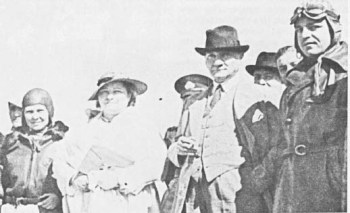Everything we see in the world is the creative work of women.
With abiding faith in the vital importance of women in society, Atatürk launched many reforms to give Turkish women equal rights and opportunities. The new Civil Code, adopted in 1926, abolished polygamy and recognized the equal rights of women in divorce, custody, and inheritance. The entire educational system from the grade school to the university became coeducational. Atatürk greatly admired the support that the national liberation struggle received from women and praised their many contributions: " In Turkish society, women have not lagged behind men in science, scholarship, and culture. Perhaps they have even gone further ahead." He gave women the same opportunities as men, including full political rights. In the mid-1930s, 18 women, among them a villager, were elected to the national parliament. Later, Turkey had the world's first women supreme court justice.

- Atatürk's Life
- National Liberator
- Founder of the Republic
- Legal Transformation
- Social Reforms
- Economic Growth
- The New Language
- Women's Rights
- Strides in Education
- Culture and the Arts
- Peace at Home, Peace in the World
- UNESCO Resolution on the Atatürk Centennial




















